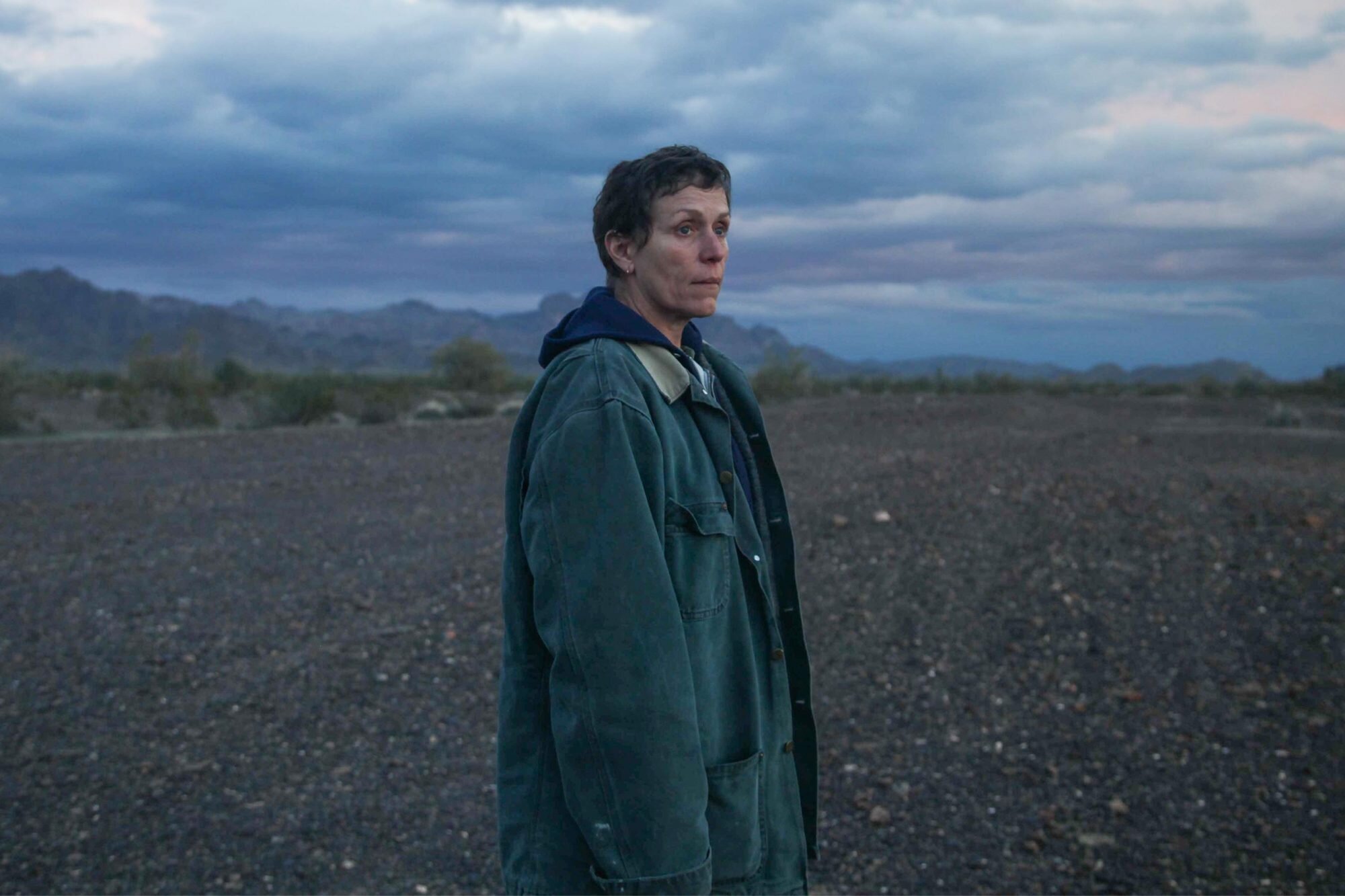It is no secret that the distinct American brand of late-stage capitalism is pushing its working class into even deeper levels of poverty. The exorbitantly high cost of health care and housing, tied with low-yield retirement benefits and a weakened welfare state, has forced many elderly Americans to adopt a neo-nomadic lifestyle. Jessica Bruder examines this phenomenon and its political context in her 2017 nonfiction book, Nomadland: Surviving America in the Twenty-First Century. Bruder interviewed older Americans who live out of their vans and RVs, travelling across states to find seasonal work. Some of these Americans were cast as fictionalized versions of themselves in Nomadland (2020), written and directed by Chloé Zhao. The film recently won Best Picture – Drama and Best Director at both the Golden Globes and the Critics Choice Awards, and is Zhao’s third feature-length film.
Nomadland follows Fern (Frances McDormand), a 60-something nomad, as she drives from South Dakota to California and back again, working at Amazon warehouses, fast-food chains, and National Park campsites along the way. Fern’s character is based on an ex-resident of the real town of Empire, Nevada, which was wiped off the map after the sole source of its local economy—a gypsum mine—shut down after the 2008 recession. In contrast to its source material, Nomadland is much more about its own postscript—Dedicated to the friends who had to depart—than the scenes inside factory warehouses. Despite the book’s focus on socioeconomic factors, the film, in fact, does not address these issues at the foundation of the plot, perhaps to its detriment. To Fern, working for Amazon and various farms are just parts of her macro-level routine of driving around in search for odd jobs, and audiences who anticipate a take-down of the gig economy in Nomadland will find it lacking.
From a strictly formal perspective, McDormand’s raw and powerful performance and Joshua James Richards’ stunning cinematography paint a heart-wrenching portrait of grief and life’s impermanence. Fern, surrounded by the unforgiving, expansive, yet majestic American landscape, is chiefly a nomad because everything that provided her stability and security in the past has dissipated––her husband, Beau, has recently passed away, leaving her with no children, and she is forced out of her hometown. Throughout the film, Fern staunchly rejects offers from her friends and family to stay with them. Fern is unable to sit still and only feels truly at home in her van, where she can easily pack up and head to a new destination. Much like other characters in grief-centred films, especially Lee Chandler (Casey Affleck) of Manchester by the Sea (2016), Fern is stubbornly self-reliant and cannot let go of the trauma she carries. She is unable to commit to something permanent despite her ability to acknowledge that other people foster that desire. Fern encourages Dave (David Strathairn), another nomad, to return home to his son and grandchild, yet when she visits them later on, she flees without saying goodbye. In a subsequent conversation, Bob (Bob Wells), the de facto leader of the van-dwelling community, voices something Fern has believed for a while.
“I don’t ever say a final goodbye,” Bob tells Fern. “I always just say, ‘I’ll see you down the road’. And I do. And whether it’s a month, or a year, or sometimes years, I see them again.”
The film’s incredible depth and power come from such moments, showing the audience what it means to accept the grief and loss with open arms. Without emphasizing fear, guilt, or shame, Nomadland reminds audiences that relationships are the most fluid and impermanent parts of existence, and ultimately, that our lives are filled with person-shaped holes.








